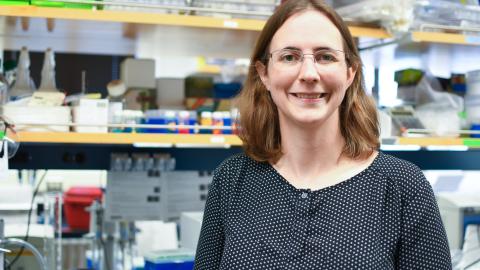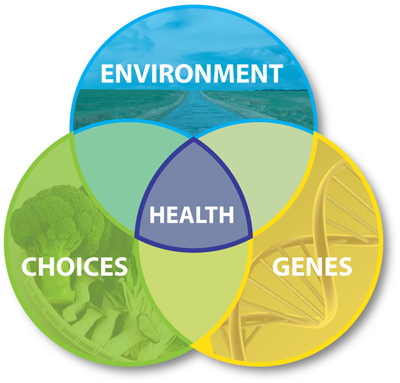
Welcome Jamie Donatuto–EDGE’s New Co-Director of Community Engagement
Jamie Donatuto, a new clinical associate professor in the University of Washington Department of Environmental and Occupational Health Sciences, began co-directing community engagement for the EDGE Center on March 1, 2025.
LEARN MORE
New center helps ready Northwest communities for disasters and public health emergencies
Northwest Center for Evidence-Based Public Health Emergency Preparedness and Response launches with funding from U.S. Centers for Disease Control and Prevention
LEARN MORE
EDGE Pilot Grant Seeds Groundbreaking Biochemical Research
Ashleigh Theberge was recently admitted to the prestigious Schmidt Sciences Polymath Program based in part on innovative work supported by an EDGE pilot grant
LEARN MORE The EDGE Center is committed to conducting and communicating science that reduces the burden of environmentally-related diseases through science translation into policy and practice. We use cutting edge molecular and systems biology to explore how the interactions of genetics, epigenetics and environmental factors contribute to diseases of public health importance. In particular, we are at the forefront of research into molecular signatures (biomarkers) associated with toxicant exposure. Our work to uncover important genetic, epigenetic and environmental contributions to chronic diseases can help improve prevention, early diagnosis, and the development of effective treatments. Such developments will substantially reduce the social burden and health care costs associated with sickness and early death caused by diseases like cancer, cardiovascular disease, respiratory disease, liver disease, kidney disease, metabolic disorders like diabetes, chronic neurodegenerative diseases like Alzheimer's and Parkinson's and developmental and reproductive disorders.
The EDGE Center is committed to conducting and communicating science that reduces the burden of environmentally-related diseases through science translation into policy and practice. We use cutting edge molecular and systems biology to explore how the interactions of genetics, epigenetics and environmental factors contribute to diseases of public health importance. In particular, we are at the forefront of research into molecular signatures (biomarkers) associated with toxicant exposure. Our work to uncover important genetic, epigenetic and environmental contributions to chronic diseases can help improve prevention, early diagnosis, and the development of effective treatments. Such developments will substantially reduce the social burden and health care costs associated with sickness and early death caused by diseases like cancer, cardiovascular disease, respiratory disease, liver disease, kidney disease, metabolic disorders like diabetes, chronic neurodegenerative diseases like Alzheimer's and Parkinson's and developmental and reproductive disorders.

